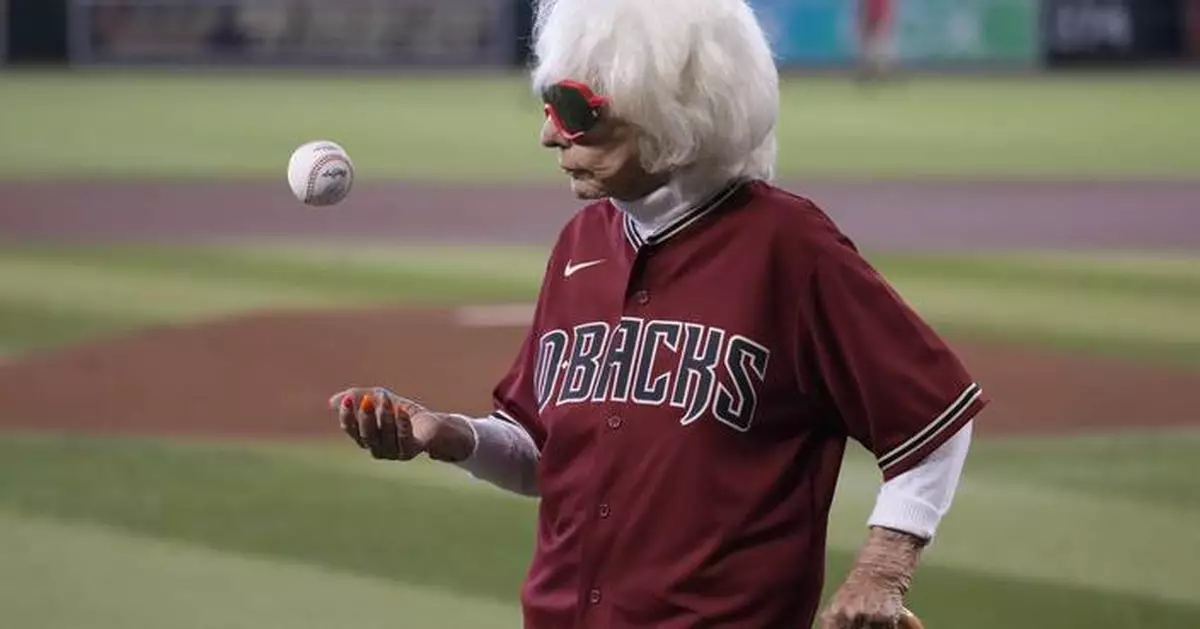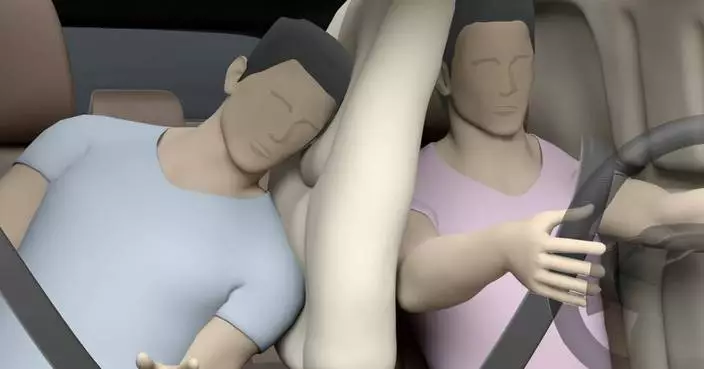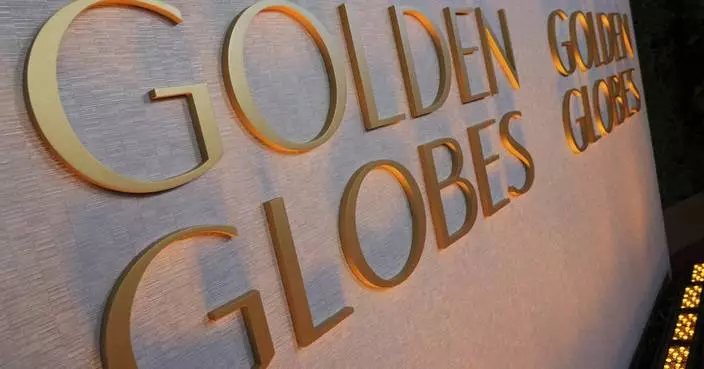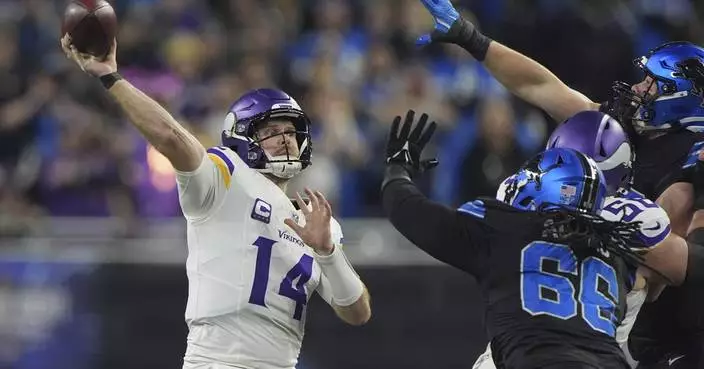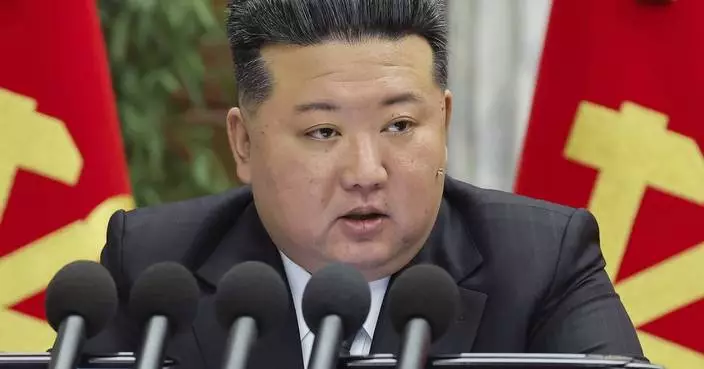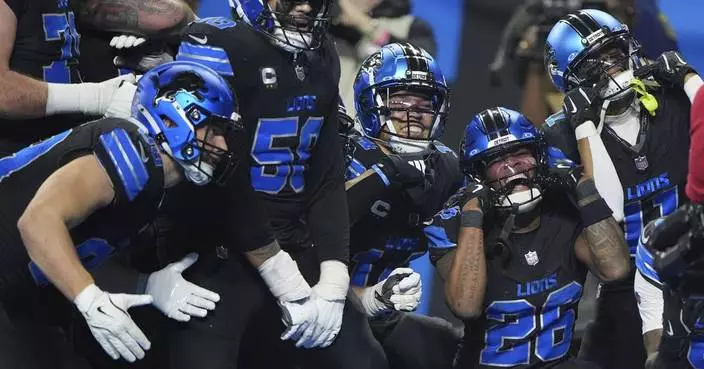Former baseball pitcher Maybelle Blair will be an honorary chair on the advisory board of the Women's Professional Baseball League, which last month announced plans to launch in 2026 as a six-team circuit for female players.
The 97-year-old Blair, who helped inspire the baseball film “A League of Their Own” with her play in the All-American Girls Professional Baseball League, will chair a board of women who have worked in sports and business. The list includes a leader from the upstart Professional Women's Hockey League, a longtime ESPN executive, and baseball pitcher and six-time World Cup winner Ayami Sato.
“We have been waiting 70 years for a women’s professional baseball league,” Blair said in a release from the WPBL, "and it means so much for the girls. It is going to be our great opportunity and we must take advantage of it now.”
The WPBL aspires to be the first pro league for women since the All-American Girls Professional Baseball League dissolved in 1954. Co-founders Justine Siegal, who is the first woman to coach for an MLB team, and Keith Stein, a lawyer and businessman, both said the league's goal is to establish a solid women's baseball culture in the U.S.
In preparation for its first season, the league will hold a scouting camp in spring 2025, followed by a player draft later in the year. The league plans to play a regular season, playoffs and championship in the summer of 2026.
Blair plans to throw the first pitch in the WPBL opener.
“I have so much respect for Maybelle and all of the All-American Girls Professional Baseball League players,” Siegal said in a release. “The All-American Girls Professional Baseball League set a precedent on what’s possible in women’s professional baseball.
"It is important to me, and the WPBL, that we honor the legacy and impact of their League while building a new future for today’s players who dream of playing professional baseball.”
The rest of the board includes Nona Lee (former Arizona Diamondbacks chief legal officer), Laura Gentile (former ESPN CMO and founder of espnW), Kate Childs Graham (speechwriter/communications strategist), Dr. Kat Williams (Founder/CEO of International Women's Baseball Center), Dr. Leslie Heaphy (chair of Society of American Baseball Research's (SABR) Women in Baseball Committee) and Digit Murphy (President of Toronto Six hockey team).
AP MLB: https://apnews.com/hub/MLB
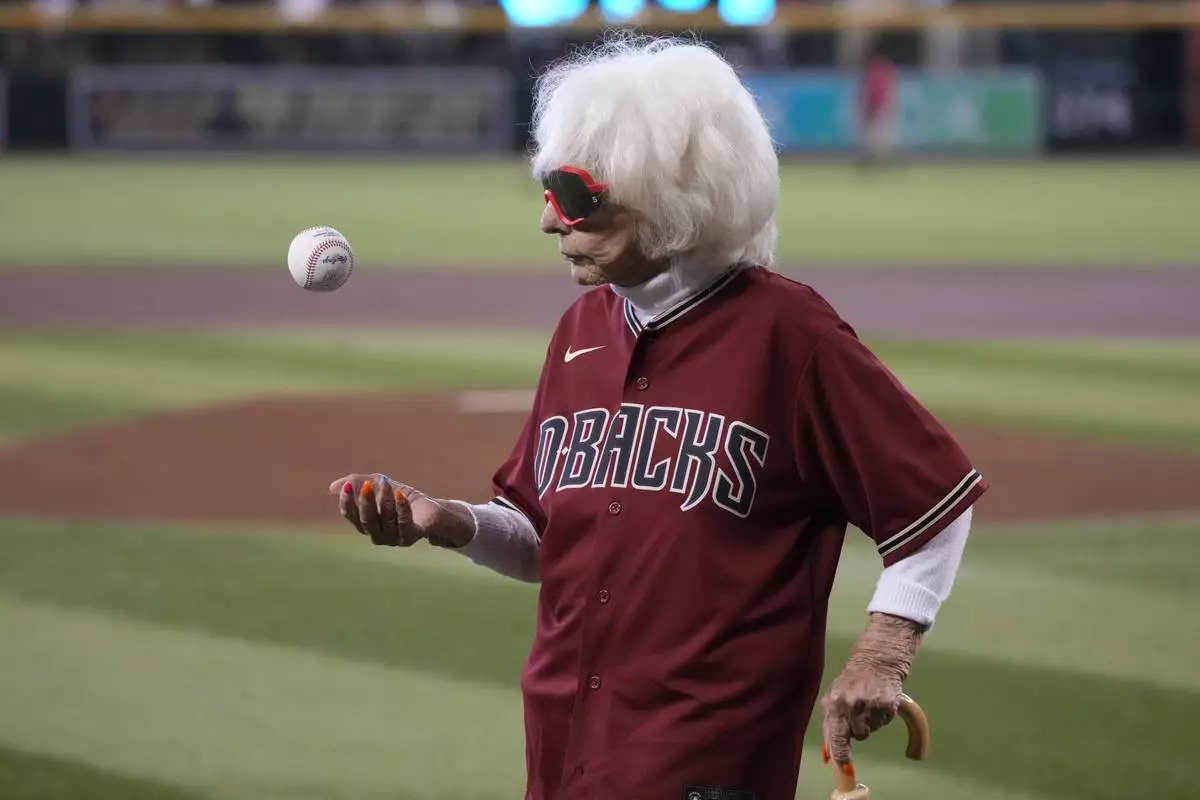
FILE - Former All American Girls Professional Baseball player Maybelle Blair before a baseball game between the Arizona Diamondbacks and the Washington Nationals, on July 24, 2022, in Phoenix. (AP Photo/Rick Scuteri, File)
CARACAS, Venezuela (AP) — The next presidential term in Venezuela is set to begin Friday, when the ruling party-controlled congress hosts a swearing-in ceremony for President Nicolás Maduro, despite serious doubts about the validity of last year’s official election results.
Maduro is expected to begin a third six-year term amid demonstrations by his supporters, but it is unclear if anyone among the millions who voted for his main challenger, Edmundo González, will also protest. González, who claimed to have won the July 28 election, left Venezuela for exile in Spain in September after a judge issued a warrant for his arrest.
Taking the oath of office will allow Maduro to cement a mishmash of policies that allowed the government to end the scarcities and runaway inflation that dominated most of his 11 years in office. Those measures, however, no longer fulfill his and his predecessor’s self-proclaimed socialist promises and continue to strip Venezuela of its democracy.
González has said he intends to be in Caracas on Friday, but he has not explained how he intends to do so or what his plans are upon arrival.
Here’s what to know about Venezuela’s next presidential term:
The doubts stem from the government’s lack of transparency in handling and announcing the results of the presidential election.
Venezuela’s National Electoral Council, stacked with ruling-party loyalists, declared Maduro the winner hours after polls closed. However, unlike previous presidential elections, electoral authorities did not provide detailed vote counts, alleging that a website hack prevented them from doing so.
Yet, the opposition collected tally sheets from 80% of the nation’s electronic voting machines, posted them online and said the detailed vote records showed González won the election with twice as many votes as Maduro.
Global condemnation over the lack of transparency prompted Maduro to ask the country’s high court, also filled with allies of the ruling United Socialist Party of Venezuela, to audit the election results. The court, without showing thorough evidence, subsequently reaffirmed Maduro’s victory and encouraged the electoral council to release the vote counts. But electoral authorities never did and neither did the ruling party, whose voting center representatives — just like the opposition’s — were entitled to tally sheets from every voting machine.
The U.S.-based Carter Center, which Maduro’s government invited to observe the presidential election, has said the tally sheets published by the opposition are legitimate.
The government frequently schedules demonstrations, particularly when it wants to show strength in numbers, such as on Friday. Maduro has called on Venezuelans to head to the streets that day, but not everyone marching with a pro-ruling-party shirt supports him. The government often coerces public employees and state-benefits recipients into participating in demonstrations.
Whether people will protest against Maduro on Friday remains to be seen since the government’s post-election repression campaign, including the arrests of more than 2,000 people, has had a chilling effect. And even if opposition supporters decide to demonstrate, it is unclear who would lead them.
On Sunday, opposition stalwart Maria Corina Machado urged supporters to demonstrate on Thursday across the country to push Maduro out of office.
“Maduro is not going to leave on his own, we must make him leave with the strength of a population that never gives up,” Machado said in a social media video. “Go outside, shout, fight. It is time to stand firm, and make them understand that this is as far as they go. That this is over.”
Machado, who has been hiding for months at an undisclosed location to avoid arrest, told supporters she “will be with” them Thursday.
Meanwhile, González remains away from Venezuela and opposition leaders who often accompanied him and Machado to campaign rallies were jailed after the election.
Members of the National Assembly, ministers and Maduro’s close allies within Venezuela are expected to attend.
The government’s centralized public information office did not immediately respond to a request from The Associated Press for a list of the heads of state who have confirmed their attendance.
But the list could be in the single digits since the country’s post-election crisis has further isolated Maduro.
Maduro has faced criticism for the election’s lack of transparency from dozens of countries, including neighboring Colombia and Brazil, whose leaders had been friendly toward him in practically all other matters. They even attempted to broker a peacemaking deal between his government and the opposition after the July vote. Neither country’s president will attend Friday’s ceremony and will instead send representatives.
Maduro’s last inauguration, in 2019, was attended by Cuba’s President Miguel Diaz-Canel and then-Bolivian President Evo Morales.
The food shortages and four-digit inflation that characterized most of Maduro’s 11-year presidency are gone, but the country’s protracted crisis has no end in sight.
These days, the average Venezuelan must cope with a monthly minimum wage of less than $2, soaring food prices, irregular fuel supply and a substandard public education system. But at the same time, a lucky few with ties to Maduro and his allies benefit from jobs and contracts that allow them to afford imported toilet paper that costs $70, import and sell vehicles, open made-for-Instagram restaurants, and offer luxury tourism experiences.
That inequality is precisely the kind that was supposed to disappear under the policies that Maduro’s mentor and predecessor, the late President Hugo Chávez, described as socialism for the 21st century. It is expected to widen as the government continues to wrestle with an oil-dependent economy crippled by limited crude production, corruption, mismanagement, economic sanctions, firmly restricted credit access and a lack of private investment.
Ahead of the election, voters across the country repeatedly said they or their loved ones would emigrate if Maduro remained in power. Under his watch, more than 7.7 million Venezuelans have already left their homeland in search of better living conditions.
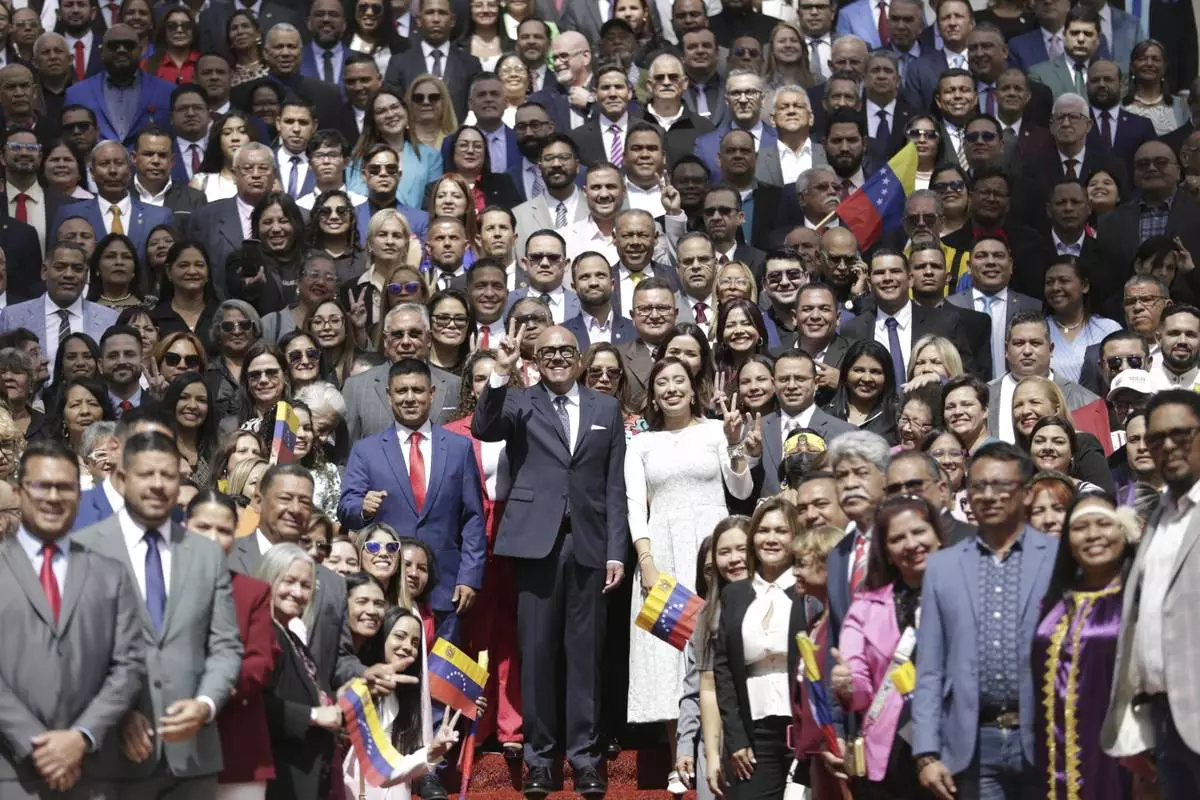
National Assembly President Jorge Rodriguez, center, poses for a photo with newly sworn-in lawmakers after the start of the legislative year in Caracas, Venezuela, Sunday, January 5, 2025. (AP Photo/Cristian Hernandez)
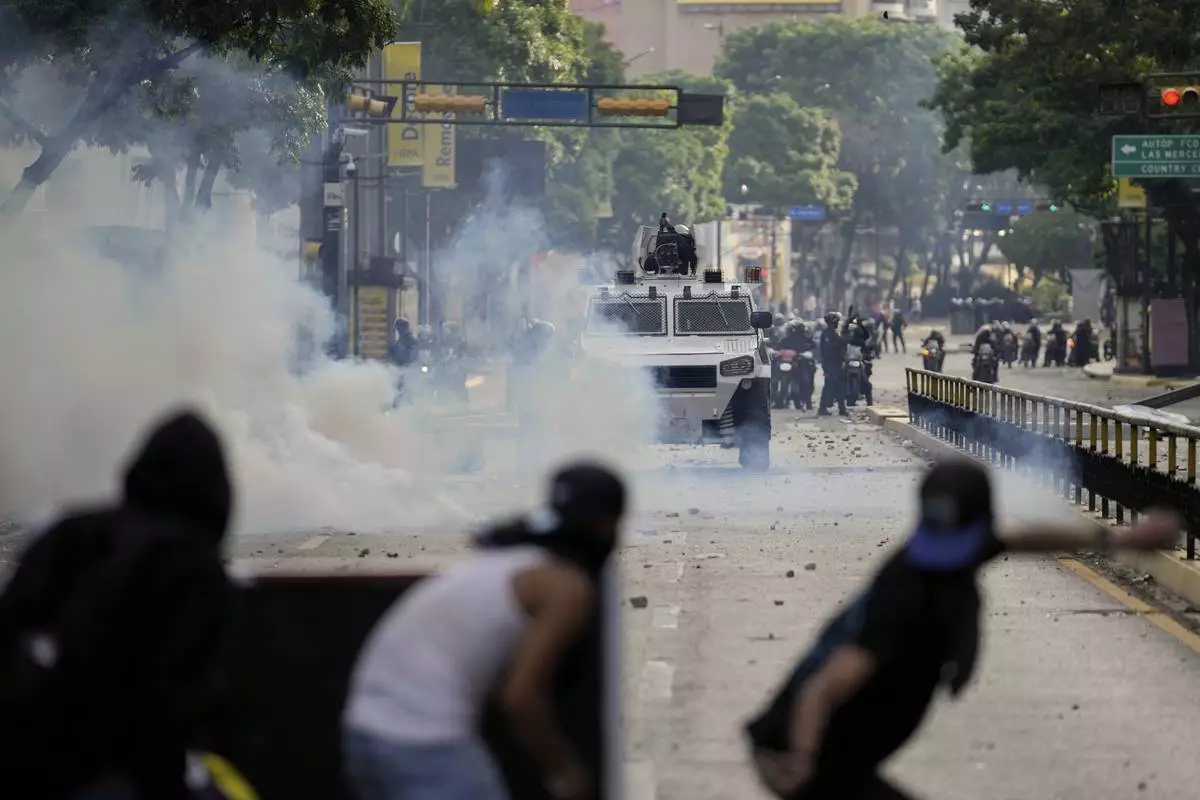
FILE - Protesters clash with police during demonstrations against the official election results declaring President Nicolas Maduro's reelection, the day after the vote in Caracas, Venezuela, July 29, 2024. (AP Photo/Matias Delacroix, File)
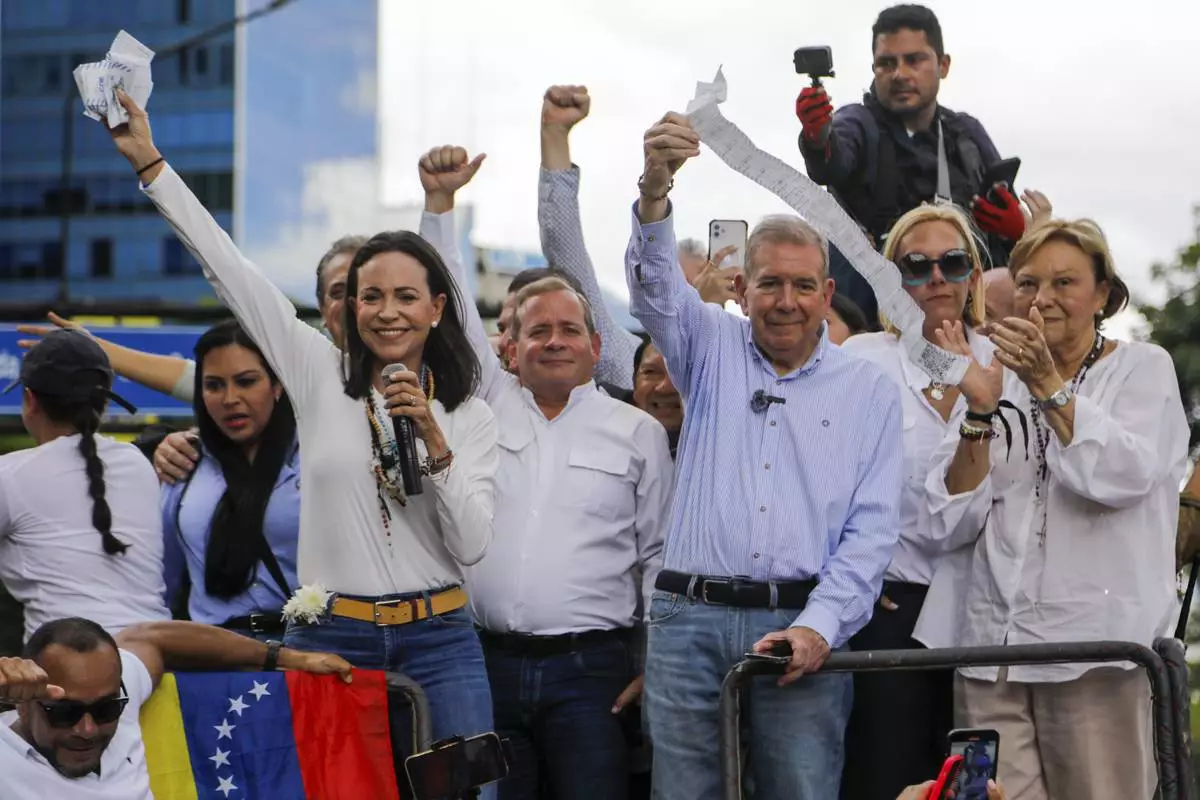
FILE - Opposition leader Maria Corina Machado, left, and opposition candidate Edmundo Gonzalez hold up vote tally sheets from the top of a truck during a protest against the official presidential election results declaring President Nicolas Maduro the winner in Caracas, Venezuela, July 30, 2024, two days after the election. (AP Photo/Cristian Hernandez, File)
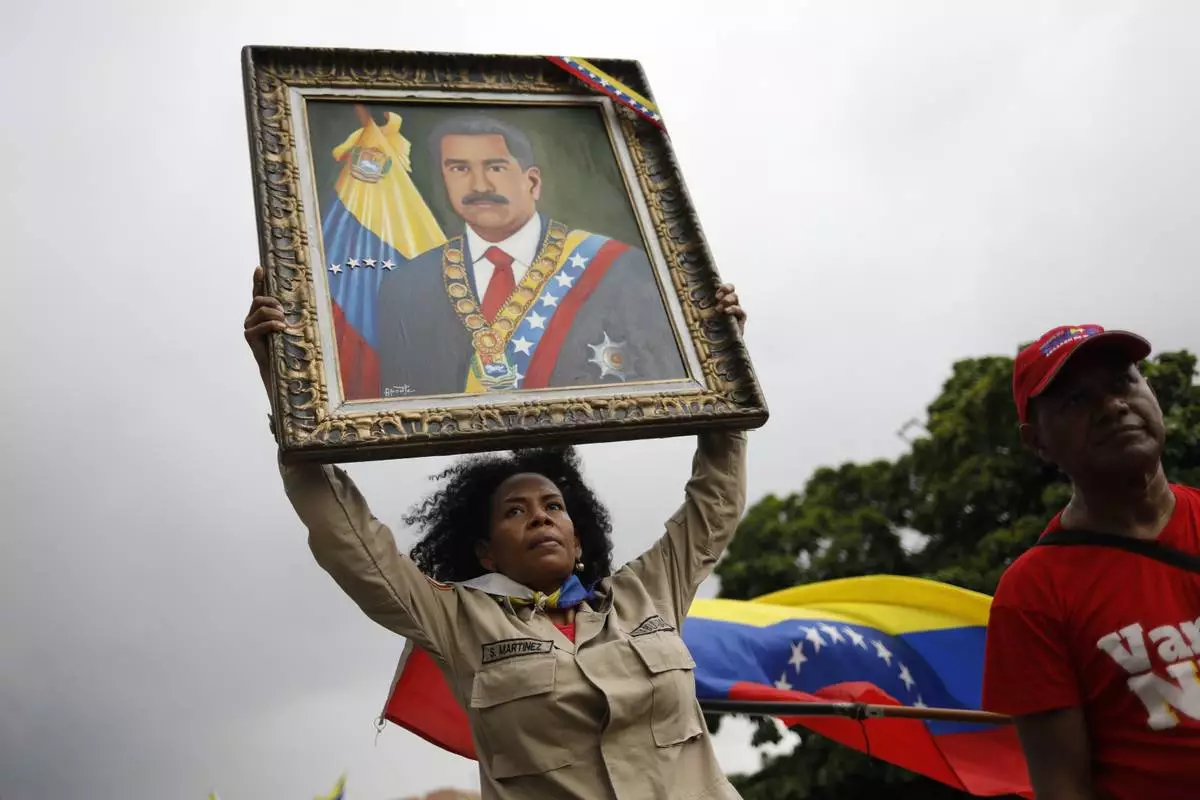
FILE - A member of the Bolivarian Militia holds up a painting depicting President Nicolas Maduro during a rally celebrating Maduro's July 28 reelection, in Caracas, Venezuela, Sept. 28, 2024. (AP Photo/Cristian Hernandez, File)
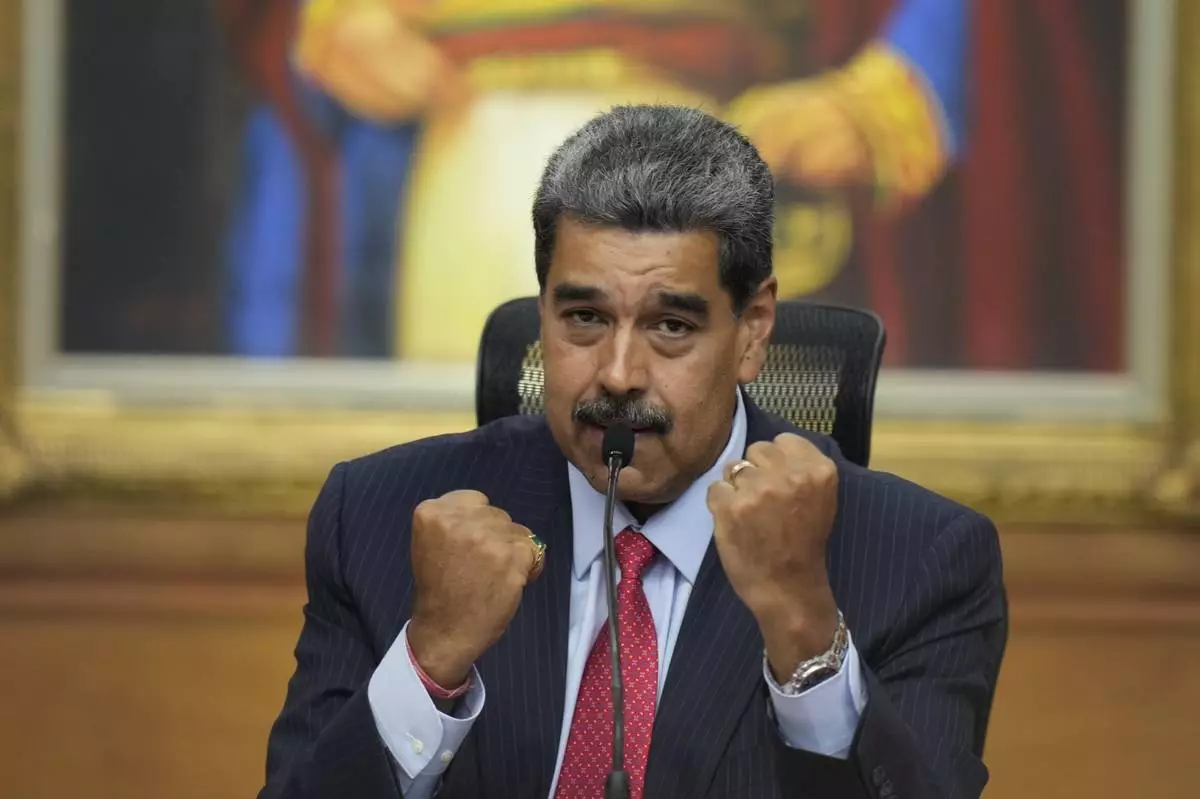
FILE - President Nicolas Maduro gestures during a news conference at Miraflores presidential palace in Caracas, Venezuela, July 31, 2024, three days after his disputed reelection. (AP Photo/Matias Delacroix, File)



